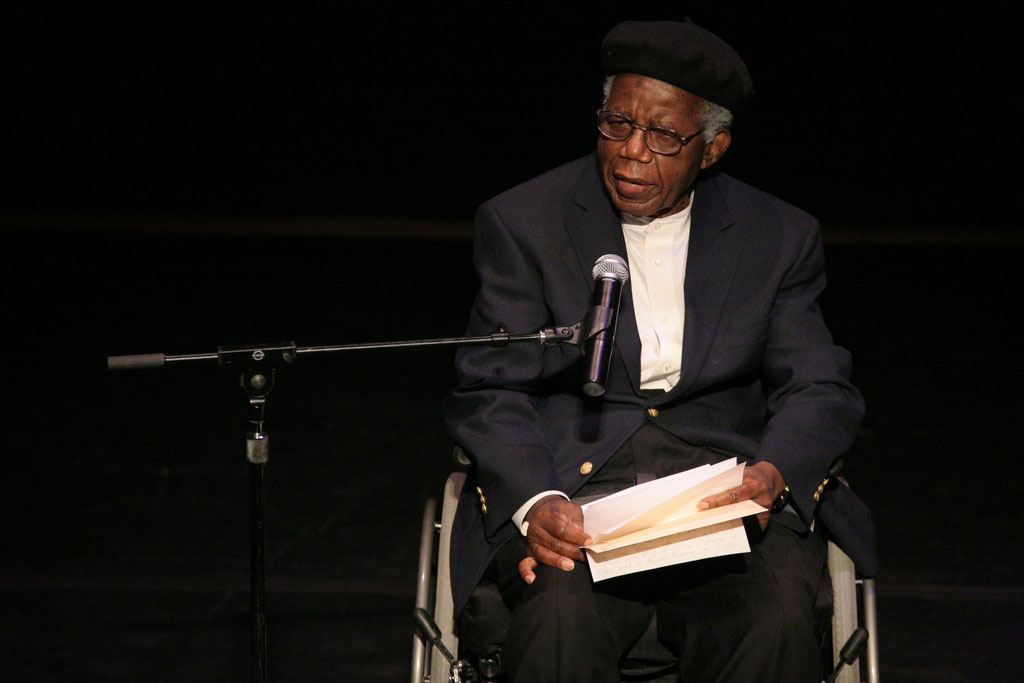Folklife Friday is a weekly digest of arts and culture articles, podcasts, and videos from across the web. Read on for a selection of the week’s best cultural heritage pieces, and don’t forget to check back next Friday for a new set of weekly picks.
The Achievement of Chinua Achebe
“Achebe found an African voice in English that is so natural its artifice eludes us,” writes Kwame Anthony Appiah in this essay. For him, what sets apart Achebe’s work is his ability to “represent for a global Anglophone audience the diction of his Igbo homeland.” Achebe believed, as Appiah writes here, that “the writer’s contribution was to give his or her people a usable past”—a link to a precolonial Nigeria—and a multiplicity of voices. “Wherever something stands,” Achebe wrote in No Longer at Ease, “something else will stand beside it.”
Between Everywhere and Nowhere
What does it mean to be “well-traveled”? It is a question Bernd Brunner poses in this review of travel literature. Among his observations is that travelers, himself included, are drawn to the oddities rather than the glorious moments and, taking refuge in the familiar, experience “a pleasure so blanketed in mist that they don’t even notice it; only later, in retrospect, do they glimpse its shadow.” Finding common cause with writer André Aciman, Brunner adds, “I can’t wait to land on things I’ve known before…‘home’ is always elsewhere.”
How to Run Away and Join the Circus
For Kristen Finley, the decision to leave her stable job and join the circus was an easy one. All it took, she explains here, was a single trapeze class and the rush of the dazzling art form. “There’s a certain feeling of adrenaline once you get up there in the air,” she says. “You feel beautiful. You feel special.” In this video, Finley speaks to the uncertainty of her day-to-day life and the thrill of breaking free of conventions. “There are not too many African American female circus performers,” she says, “but I was still able to do it.”
Want to join the circus for the day? Join us at the 2017 Smithsonian Folklife Festival!
The Syncopated Geography of Hip-Hop
“Geography plays a central role in the world of hip-hop,” writes music scholar Katya Deve in this interactive article. “From its slang, to the cadence or ‘flow’ of its artists, to the collage of sounds…all the qualities of place have been present in hip-hop culture since its beginnings.” In this collection of hip-hop playlists—a selection represented in this accompanying story map, Deve examines the profound role that the genre played in local communities and in her own life. “My life has been saturated by rap music…from an early age,” she writes, “providing me with a strong sense of home and belonging.”
Dividing and Conquering the Cuisines of China
In her new cookbook All Under Heaven: Recipes from the 35 Cuisines of China, Carolyn Phillips challenges narrow assumptions about Chinese cuisine, capturing the breadth and depth of the country’s dishes in a richly illustrated volume. Among her favorite dishes are the flaky crab shell pastries prepared near the far reaches of the Yangtze River and the dandan noodles of the Central Highlands. “A lifetime will most likely never be enough to truly appreciate them and dine on all that they have to offer,” Phillips admits. “No reason to stop trying, though.”
Special thanks to editor Elisa Hough and to Michael Atwood Mason for their contributions to this week’s digest.


